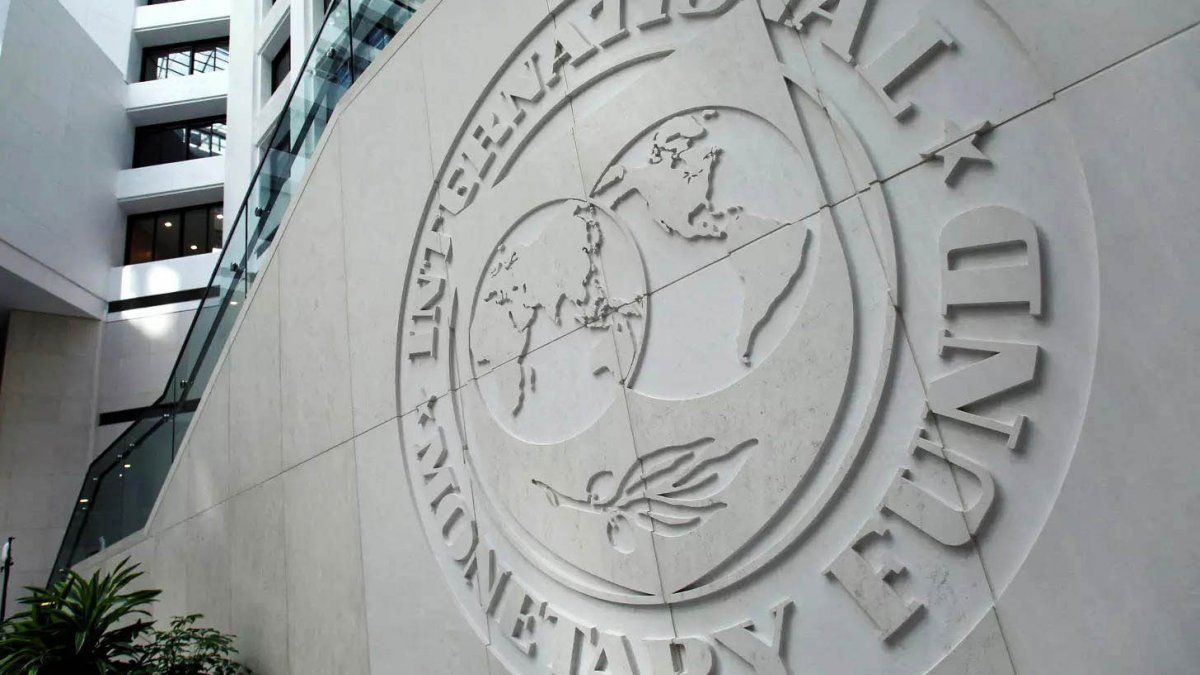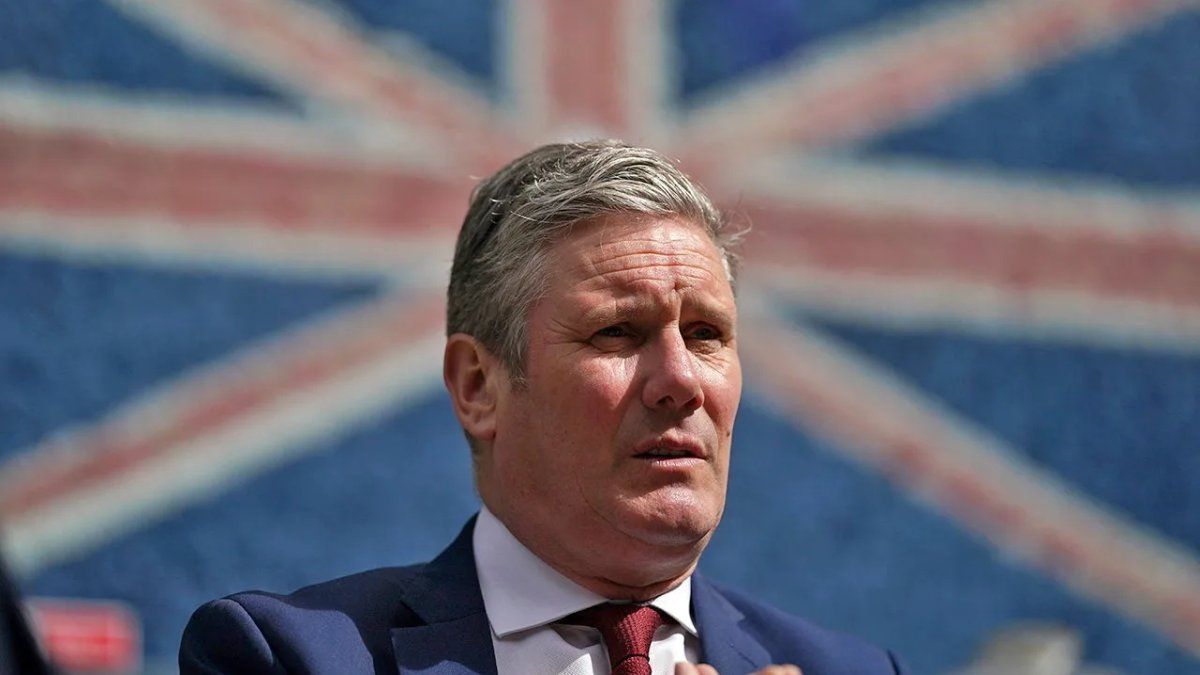Regarding the behavior of the price indices in the country, maintains that “the realignment of relative prices and the elimination of old price controls, the latest depreciation of the currency and its pass-through to prices “make inflation rise in the short term”.
Global perspectives
fmi.jpg
The Fund’s latest projections place global growth at 3.1% in 2024 and 3.2% in 2025.
Depositphotos
The Fund’s latest projections place global growth by 3.1% in 2024 and 3.2% in 2025which means that The forecasts for the current year are 0.2 percentage points higher than the calculations made last October.
This improved outlook is explained by stronger-than-expected resilience in the United States and several major emerging market and developing economies, as well as fiscal stimulus in China.
Anyway, forecasts for 2024–25 are lower than the historical average of 3.8% (2000–19), in the face of high interest rates to combat inflation, the withdrawal of fiscal support in an environment of heavy debt that slows economic activity and low productivity growth.
For Latin America and the Caribbeanthe growth is projected decrease from an estimated 2.5% in 2023 to 1.9% in 2024, and increase to 2.5% in 2025. In this regard, it points out that “the revision of the forecast for 2024 is due to Argentina’s negative growth in the context of a significant adjustment of economic policy to restore macroeconomic stability.” Instead, for Brazilthe country’s main partner, there is an improvement of 0.2 percentage points –would grow 1.7% in 2024-.
Landing of the global economy
“The clouds are beginning to dissipate. The global economy begins the final descent toward a soft landing, with inflation steadily declining and growth maintaining. But the pace of expansion remains slow and turbulence is possible, he said. Pierre-Olivier Gourinchas.
According to the economist, important divergences continue to exist. He said the Fund expects a slower growth in the United States, as a consequence of restrictive monetary policy, and in China, where weakness in consumption and investment continues to weigh on activity.
In the euro zone, meanwhile, activity is expected to pick up slightly after a challenging 2023, when high energy prices and tightening monetary policy restrained demand. Many other economies continue to show great resilience, with growth accelerating in Brazil, India and the largest economies in Southeast Asia.
Inflation in the world
Inflation-Prices-Supermarket

The IMF predicts that the general level of inflation worldwide will decline to 5.8% in 2024 and 4.4% in 2025.
Ignacio Petunchi
Another positive development is that inflation is declining faster than expected in most regions as supply-side problems dissipate and tight monetary policy is implemented.
The IMF predicts that the general level of inflation worldwide will decline to 5.8% in 2024 and 4.4% in 2025. Disinflation is expected to be faster in advanced economies, where inflation is projected to decline by 2 percentage points in 2024, to 2.6%, than in emerging market and developing economies, where the index is estimated to only decrease 0.3 percentage points, to 8.1%
“In the face of disinflation and steady growth, the probability of a hard landing has receded, and risks to global growth broadly balanced”says the report.
In this regard, he considers it “positive” that a faster disinflation could lead to a greater relaxation of financial conditions. Although, he warns that “A fiscal policy that is more lax than necessary and than assumed in the projections could lead to a temporary increase in growth, under penalty of a more costly subsequent adjustment.”
For and against
In a note published on the IMF blog, Pierre-Olivier Gourinchas detailed the issues that could play for and against the global economy.
Among the first is that the Disinflation could happen faster than expected, especially if tension in the labor market eased and short-term inflation expectations continued to decline. This will allow central banks to ease their monetary policies sooner than expected.
Fiscal consolidation measures that governments have announced for 2024-25 could be delayed as many countries face growing calls for more public spending in what is the biggest global election year in history. According to the IMF economist, this could boost economic activity, but also stimulate inflation and increase the prospect of disruptions later.
He also considered that A rapid improvement in Artificial Intelligence could boost investment and stimulate rapid productivity growth, although with significant challenges for workers.
As for the factors that could have a negative impact, stated that There could be further disruptions to supplies, particularly of commodities following renewed geopolitical tensions, especially in the Middle East. He recalled that shipping costs between Asia and Europe have increased significantly, due to attacks on ships in the Red Sea, and considered that “although the disruptions remain limited so far, “The situation remains volatile.”
Another problem could be that core inflation will prove more persistent than expected. In this regard, he maintained that the price of goods remains historically high in relation to the values of services. The adjustment could take the form of more persistent service and general inflation. Likewise, wage negotiations, particularly in Europe, could increase price pressures.
He also warned that “Markets seem overly optimistic about the prospects for early interest rate cuts” and stated that if investors reassessed their view, long-term interest rates would rise, putting renewed pressure on governments to implement faster fiscal consolidation that could affect economic growth.
Structural reforms
fmi-dolar.jpg

The IMF raises the need for the application of focused and orderly structural reforms that would reinforce productivity growth and debt sustainability.
Depositphotos
As it has been pointing out, the Fund considers in this report that Greater dynamism of structural reforms could boost productivity and give rise to positive cross-border spillovers.
Considers that, in the short term, country authorities face the challenge of successfully managing the final decline in inflation to the target, calibrating monetary policy in response to the dynamics of underlying inflation and, where price pressures and salaries are clearly dissipating, adjusting it to a less restrictive orientation.
At the same time, he points out that “in many cases, given that inflation decreases and economies are in better conditions to absorb the effects of budgetary adjustment, renewed attention needed on fiscal consolidation in order to restore budgetary capacity and be able to address future shocks, raise revenue for new spending priorities and stop the increase in public debt.”
The IMF raises the need for the application of focused and orderly structural reforms that would reinforce productivity growth and debt sustainability, in addition to accelerating convergence towards higher income levels.
From this point of view, consider “The efficiency of multilateral coordination must be increased, among other things, to facilitate debt resolution, avoid critical situations caused by debt overhang and create space for necessary investments, as well as to mitigate the effects of climate change”.
Source: Ambito




